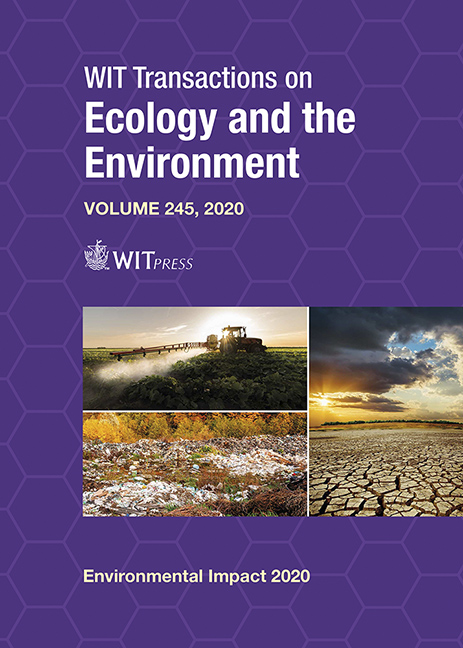BRAZILIAN ENVIRONMENTAL-IMPACT ASSESSMENT SYSTEM: A CRITICAL ANALYSIS
Price
Free (open access)
Transaction
Volume
245
Pages
8
Page Range
1 - 8
Published
2020
Paper DOI
10.2495/EID200011
Copyright
WIT Press
Author(s)
PAULO ROBERTO A. TAGLIANI, POHREN ROBERTA, LUIS FERNANDO CARVALHO PERELLO
Abstract
Until recently, Brazil was recognized for having quite advanced environmental legislation. The Brazilian environmental licensing process was legally established in 1986. It provides for 3-phase licensing: pre-license, installation license and operating license. The environmental licensing is triggered by the environmental license application with the Environment Impact Assessment (EIA) authority. Depending on the regional location of the project or its polluting potential, the licensing may be conducted by the federal, state or local environmental agency, which makes the screening based on legislation to determine whether or not the environmental license requires an environmental impact study. There is a rule that defines those activities that will necessarily have to elaborate the EIA. After screening, the environmental agency establishes the Term of Reference. There is no scoping process in Brazilian law. Consequently, most environmental-impact studies lack a focus on core issues and sometimes shift their focus to less relevant issues, often disregarding the informal knowledge of the local population and their perception of risk. In addition, transparency as to the criteria employed in assessing the significance of impacts is generally lacking — studies that may biasedly disregard the potential for some harm are accepted. Originally, the first regulation established financial independence of the consulting company from the entrepreneur who is responsible for paying the expenses for the environmental studies. In the revision of this norm in 1997, this independence ceased to exist on the grounds that the necessary transparency was ensured through the application of the public-hearing instrument. However, the public hearing is a one-off event in the environmental-licensing process and does not adequately fulfill the role of promoting public participation, being an overly formal, bureaucratic and inhibiting process. In conclusion, the EIS process in Brazil has been of great relevance for environmental adequacy and/or minimization of project impacts, but there are still many weaknesses to strengthen to legitimize this important instrument.
Keywords
environmental licensing, public hearings, impact assessment, environmental impact studies





